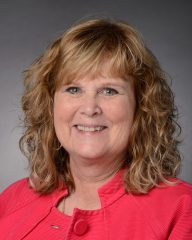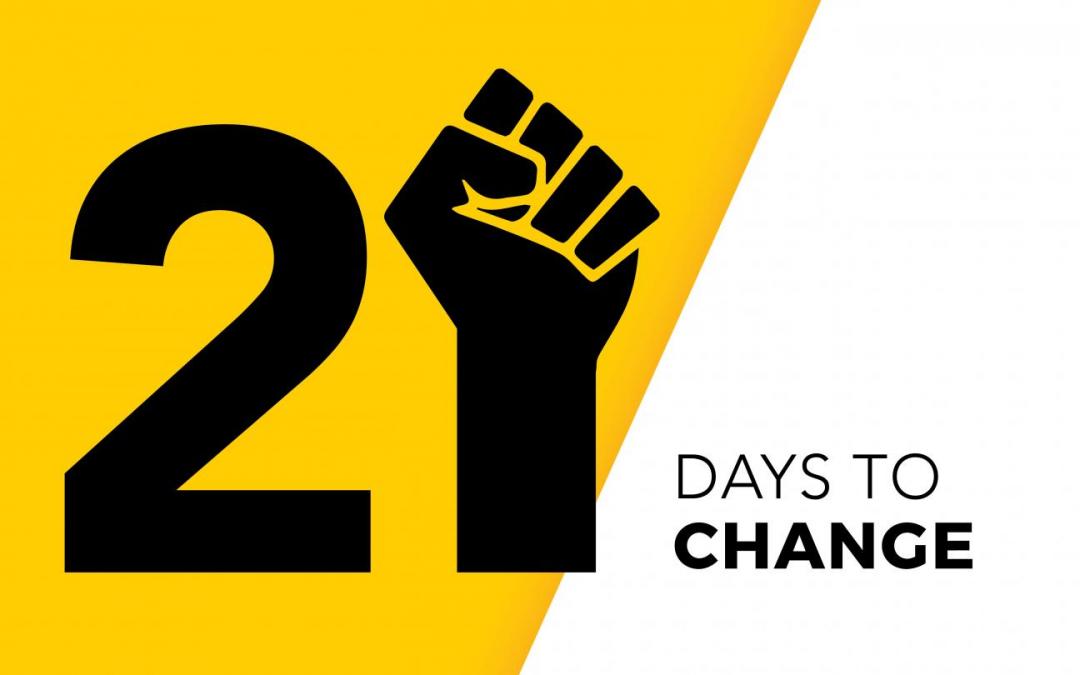Marguerite Penick-Parks has been in demand these last few months.
A University of Wisconsin Oshkosh education professor, Penick-Parks has spent years studying multicultural literature, white privilege and social justice. She edited The Guide for White Women Who Teach Black Boys, published in 2017, and the upcoming companion Teaching Beautiful Brilliant Black Girls, which she also co-wrote. And with interim vice chancellor for Student Affairs Art Munin and renowned education consultant Eddie Moore Jr., she published The Diversity Consultant Cookbook: Preparing for the Challenge.
With the recent push against racism in the aftermath of the death of George Floyd in Minneapolis, the expertise of Penick-Parks has renewed public interest. The hottest topic of all is an endeavor she helped create in 2014, called the 21-Day Racial Equity Habit Building Challenge. An effort with Moore and racial justice writer Debby Irving, the challenge is a free three-week curriculum to help participants better understand the power, privilege, supremacy, oppression and equity issues in society. (Moore’s the director of the Privilege Institute and the National White Privilege Conference and Irving is the author of Waking Up White: And Finding Myself in the Story of Race.)

Marguerite Penick-Parks
To get a handle on what the 21-day challenge is all about and why she and the other creators have been fielding media requests all summer, we checked in with Penick-Parks a few weeks before the start of the fall semester.
Here’s our conversation about the challenge, its origins and how to take it on yourself.
Here’s an easy one: What exactly is the 21-Day Racial Equity Habit Building Challenge?
The 21-day challenge is an opportunity to engage in growth in racial awareness, issues of social justice, power, privilege and systemic inequities. The challenge requires people to read, watch, notice, engage, connect and act daily in a variety of learning opportunities. Daily activities go beyond reading an article or watching a video by requiring participants to engage with others, have honest and often difficult conversations, connect with social justice organizations in their community, and finally, finding ways to take action.
Education without action is not sustainable and does not create changes. The challenge was created to give participants not only education, but also skills for active participation in social change.
What’s the origin of this challenge?
Eddie Moore Jr., after years of presenting and having people say, “What can I do?,” got together with Debby Irving and created the challenge as a resource for people to who want to take action. They invited me to join the process and here we are!
What sort of groups or organizations have co-opted this program?
The program has been adopted by both large organizations and small groups. Statewide the YMCA/YWCA organization has used the challenge. There is a statewide bar association currently engaged in the challenge. Food Solutions is on their sixth year of doing the challenge and is nationwide. In addition, schools, churches, nonprofits and others have used it. I have used it in my master’s Dialogues in Social Justice course for the past three years.
What kind of challenges are included? Can you give an example or two?
The challenges are broken up into different categories, including things to read, listen to, watch, reflect or act on and more. There are YouTube videos as short as two minutes and full feature-length films and series. Listening to NPR’s Code Switch podcast is an example. Reading Robin DiAngelo’s original White Fragility essay is another.
This summer we have started expanding the plans and tailoring them to specific groups or events. We started one on protest and revolution to address the issues of this summer, we have one specifically for educators, one by/for the Indigenous community, one on self-care and others.
The challenges can be found at Moore’s website, America & Moore.
What sort of feedback have you received for those who’ve finished it?
My students have consistently stated the challenge is one of the best, if not the best, things they have done in their education career. Some have adapted it for their own classrooms. They call it transformational.
“This social justice project has been one of the most impactful experiences in my Educational Leadership and Policy journey,” one student wrote. “This project has made me think critically about the world I live in. I have learned a lot about myself, and about others around me.”
I hear similar things from others. Eddie, Debby and I recently did a webinar with Food Solutions to introduce it to the next generation of people doing the challenge.
What are your hopes for the program? What’s the ultimate goal?
The plan is free because we hope as many people will engage in it as possible. The ultimate goal of course is education and giving people the tools they need to engage in social justice. Professor Moore always talks about “skill building” and the challenge is about skill building. We have plans in the works to make it even more accessible so more people will see the need and continue to work to bring about change.
Learn more:

